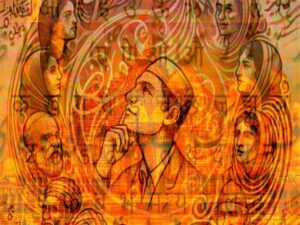Recent UN report highlighting ‘Chinese oppression’ gives hope to Tibetans
Lhasa [Tibet], March 16 (ANI): A recent United Nation report about the oppression of Tibetans practised by the Communist Party of China (CCP) has shown support from the international organisation and also gave hope to the Tibet people, Tibet Press reported.
Recently, the UN Convention on the Economic, Social, and Cultural Rights and the UN Committee on Economic, Social, and Cultural Rights published their final findings.
The report gave a picture of a large number of violations of China’s responsibilities. The relocation of nomadic herdsmen, particularly Tibetan ones, “is carried out in the state party without sufficient consultation and, in most cases, without free, prior, and informed permission,” according to an expert.
In addition, it was taken into account that compensation for the expropriated property is sometimes insufficient to sustain an adequate quality of living and that traditional lands and livelihoods may be lost as a result of poverty alleviation programmes and ecological restoration resettlement initiatives, according to Tibetan Press.
China has been advised by the UN Committee to immediately suspend all such forced relocation and rehousing schemes and engage in genuine engagement to look at other solutions with full, adequate, and timely compensation.
Concerned about the subpar working conditions, workplace harassment, and absence of labour inspection procedures to look into violations in Tibet, the UN Committee has advised China to provide funding for labour inspection and independent audit firms to pursue legal action against enterprises in Tibet, the report stated.
The UN Committee also raised the issue of significant limitations placed on Tibetans’ participation in cultural life, particularly their ability to learn and teach Tibetan language, history, and culture.
By safeguarding and repairing holy places, the Committee has advised China to “take appropriate measures to maintain cultural diversity and the cultural practises and heritage of Tibetans”. The Tibet Press’ article further read that it is the UN agency, that needs to act quickly to make sure that the Chinese government actually follows its suggestions rather than just documenting them.
The Communist rulers of China are keen to destroy the culture and language of the Tibetans and the Tibetan way of life because they think that is the only way Tibetans can be weaned away from their deep faith in Buddhism. For the intolerant rulers of China, religious belief of any kind is like a red rag to a bull, the Tibetan Press reported.
Buddhism is inseparable from the Tibetan language, culture and way of life. The mark of Buddhism on the Tibetan way of life is found from the birth to the death of an individual. When a child is born, his parents celebrate his birth by making offerings to Lord Buddha and monks and distributing food to the poor. Lamas are invited to perform religious services in houses where a child is born. The second child of the family is usually sent to the monastery to become a monk.






